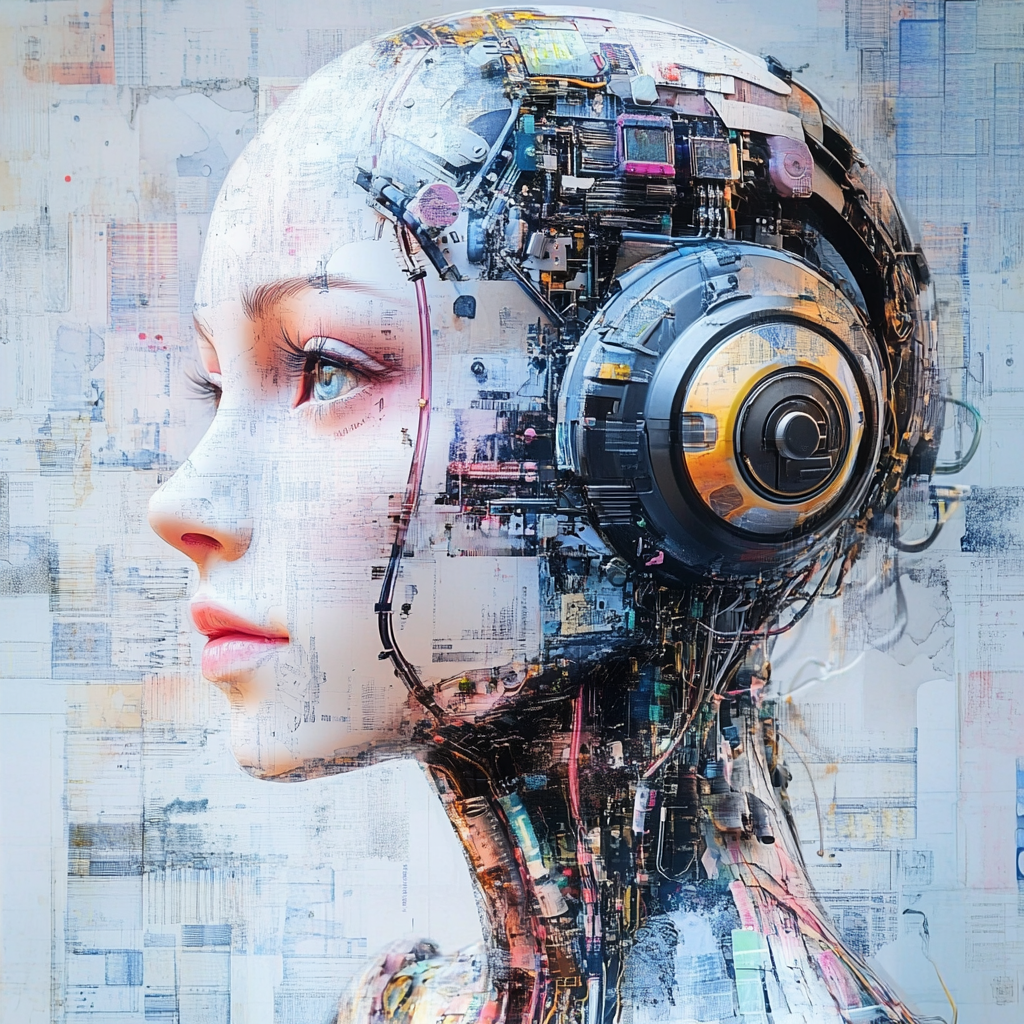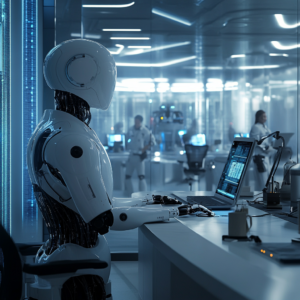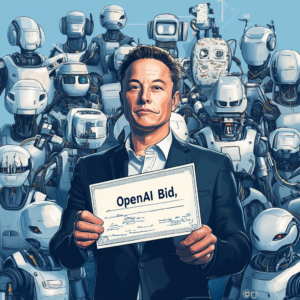
Forcing UK creatives to ‘opt out’ of AI training risks stifling new talent, report suggests
The Battle for Creative Rights: Why Forcing UK Creatives to 'Opt Out' of AI Training is a Recipe for Disaster
Welcome to the wild and wonderful world of artificial intelligence (AI) and creativity—a realm that’s gaining heated momentum and isn’t shy about sparking a lively debate in the UK. We’ve got reports and surveys that paint a picture so troubling, you’d think a horror film was being screened in parliament. Spoiler alert: it’s a real-life situation impacting artists, musicians, writers, and anyone creative who bears the digital torch.
So what’s the latest drama? Picture this: the UK government is toying with the idea of a bizarre 'opt-out' model concerning copyright and AI training datasets—a plan that could put a chokehold on the very lifeblood of creative talent in the UK. Strap in as we deep-dive into this murky water and explore just why this "opt-out" scheme could spell disaster for the future of creativity across the nation.
The Proposed 'Opt-Out' Model: A Burden on Creatives
First up, let’s talk logistics. The UK government’s brainwave suggests that AI companies can wade through the vast oceans of copyrighted works unless the creator has actively "opted out." What does that mean for our talented artists? A minefield of extra red tape, I tell you—a veritable pitfall that many emerging creatives simply won't have the means to navigate.
As Prof. Gina Neff from the Minderoo Center for Technology and Democracy put it succinctly, "Going the way of an opt-out model is telling Britain’s artists, musicians, and writers that tech industry profitability is more valuable than their creations." This isn’t just a simple case of corporate one-upmanship; it's a disregard for the creative spirit. Imagine telling our finest talent to fend for themselves while gargantuan companies rake in the profits from borrowed brilliance. Not cool, right?
The Impact on Illustrators and Other Creatives
A recent survey by the Association of Illustrators (AOI) arrived with a bombshell: about 92.65% of illustrators think opting out of AI training datasets would be a near-impossible task bound to lead to business catastrophe. Why, you ask? Because these artists are savvy—they recognize that their online work is both a portfolio and a beacon attracting clients. If AI can simply swipe their creations without so much as a 'how-do-you-do,' these creatives could find themselves washed away in an overwhelming tide of machine-generated imagery.
Think about the ramifications for active illustrators. They rely on their art paying the bills, and suddenly they face the real threat of intellectual theft, paving the way for a grim future where originality is drowned in a sea of AI mimicry. The horror!
Economic and Creative Consequences
Let’s backtrack a bit to the figures that matter. The creative industries in the UK are no sideline act—they contribute around £124.6 billion to the economy, translating to about 5.7% of the nation’s GDP. That’s a big slice of the pie! Among them, the video game industry stands out as Europe’s biggest, kicking in a cool £5.12 billion back in 2019. And yet, here we stand on the brink of a potential economic disaster where the thriving creative digital landscape could soon resemble a dystopian wasteland—all because of unregulated AI use.
The Cambridge report is crisp with its caution: the unrestricted exploitation of generative AI could allow UK artistic content to be harvested for endless offshore recycling, all while undermining the livelihoods of local creatives. This spells disaster, especially for new talents waiting in the wings and hoping to carve their own niche in this colorful yet precarious world.
Lack of Transparency and Compensation
Wait—there’s more to this suspenseful saga. The crux of the issue lies in the lack of transparency when it comes to AI training datasets. Are creators expected to stand idly by while their creations are spirited away into the mysterious realms of algorithms? That’s the refrain echoed by 98.68% of illustrators who took the AOI survey. They demand nothing short of clarity regarding the content being used to train these digital behemoths. And as for compensation for any past uses of their work, a staggering 99.05% are on board with that as well.
With such chaos surrounding licensing and regulation of data, it's like everyone is playing a game of roulette where the house always wins. Creative professionals lose out in this unfortunate arrangement, and AI companies hesitate to invest in the UK, fearing they may be stepping into a legal minefield. Talk about a lose-lose!
The Need for Clear Guidelines and Protections
To curb this spiraling situation, experts from the University of Cambridge and the AOI have put forward some clear guidelines and emphatic recommendations. Listen closely:
-
Mandatory Transparency: We need stringent rules making it compulsory for AI companies to clarify how creator content is being used. This isn’t just for giggles—it’s essential for peace of mind.
-
Standardized Licensing Agreements: Creators should be met with agreements that honestly reflect the value of their work, ensuring fair compensation for their efforts.
-
Implementation of the Beijing Treaty: This treaty gives performers strong economic rights over their creations. Adopt it, and let’s bring some order to this chaos.
- Strengthening Copyright Protections: A whopping 91.62% of illustrators believe current copyright laws should be fortified to truly protect artists from unauthorized AI training. They have spoken—let's listen!
Conclusion and Call to Action
In the grand tapestry of UK creative rights, the debate around AI is forging a path that is both critical and dynamic. Forcing creatives to 'opt out' of AI training datasets? It’s impractical and poses serious risks to a vital sector of our economy and culture.
Turning a deaf ear to the needs of artists while prioritizing tech companies isn’t going to end well, and as Prof Diane Coyle, the Bennett Professor of Public Policy eloquently observes, “We propose mandatory transparency requirements for AI training data and standardized licensing agreements that properly value creative works. Without these guardrails, we risk undermining our valuable creative sector in the pursuit of uncertain benefits from AI.”
So, here’s my rallying cry to all you lovers of creativity: Stay informed, stay vigilant, and advocate for robust protections for those who bring art to life.
Want to stay up to date with the latest news on neural networks and automation? Subscribe to our Telegram channel: @channel_neirotoken
Your voice matters, and the future of creativity depends on us fighting for our rights and ensuring that art retains its rightful place in a world where technology and human ingenuity need to coexist harmoniously. Join the conversation, and let’s champion creative rights like the true advocates we are!

